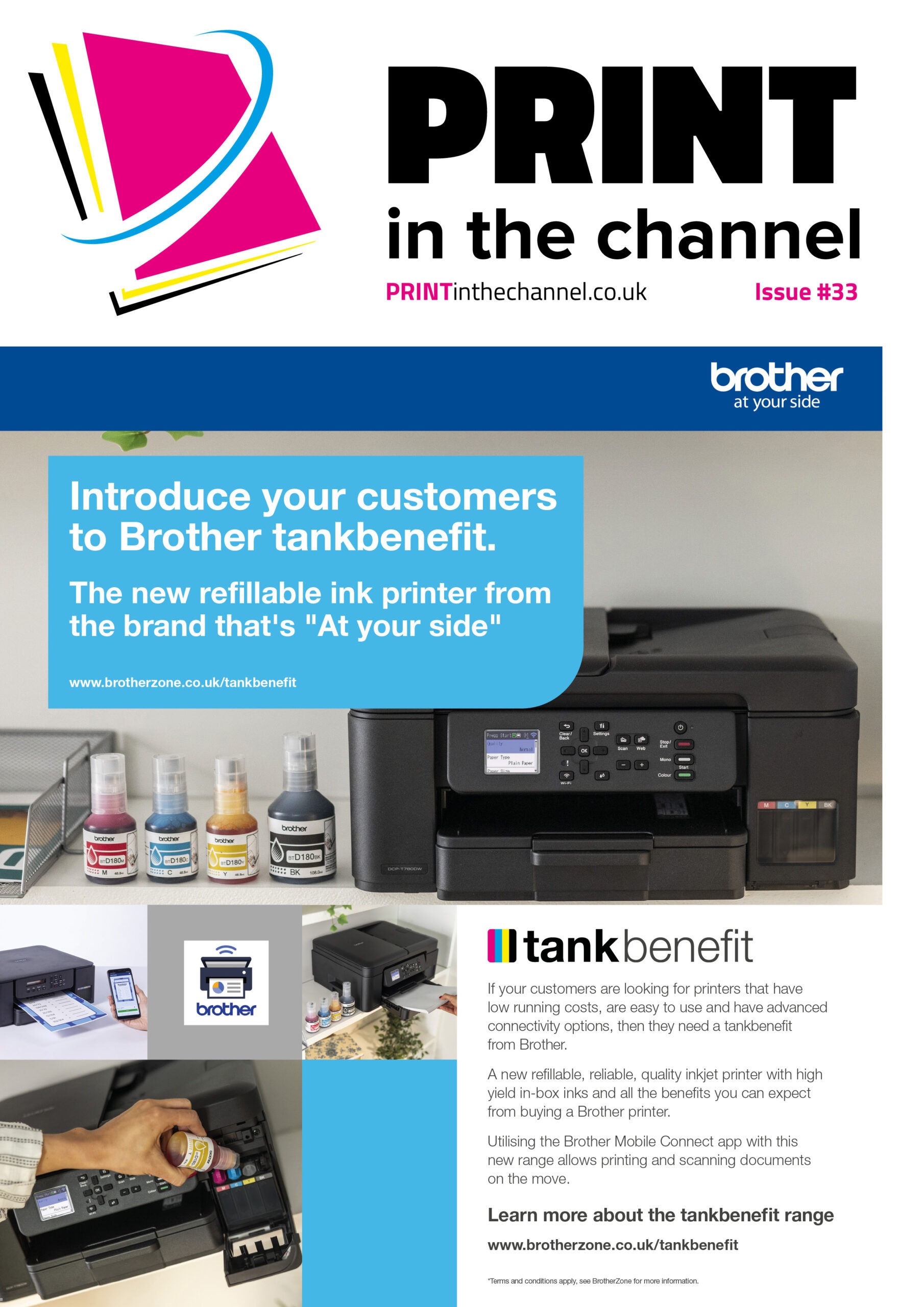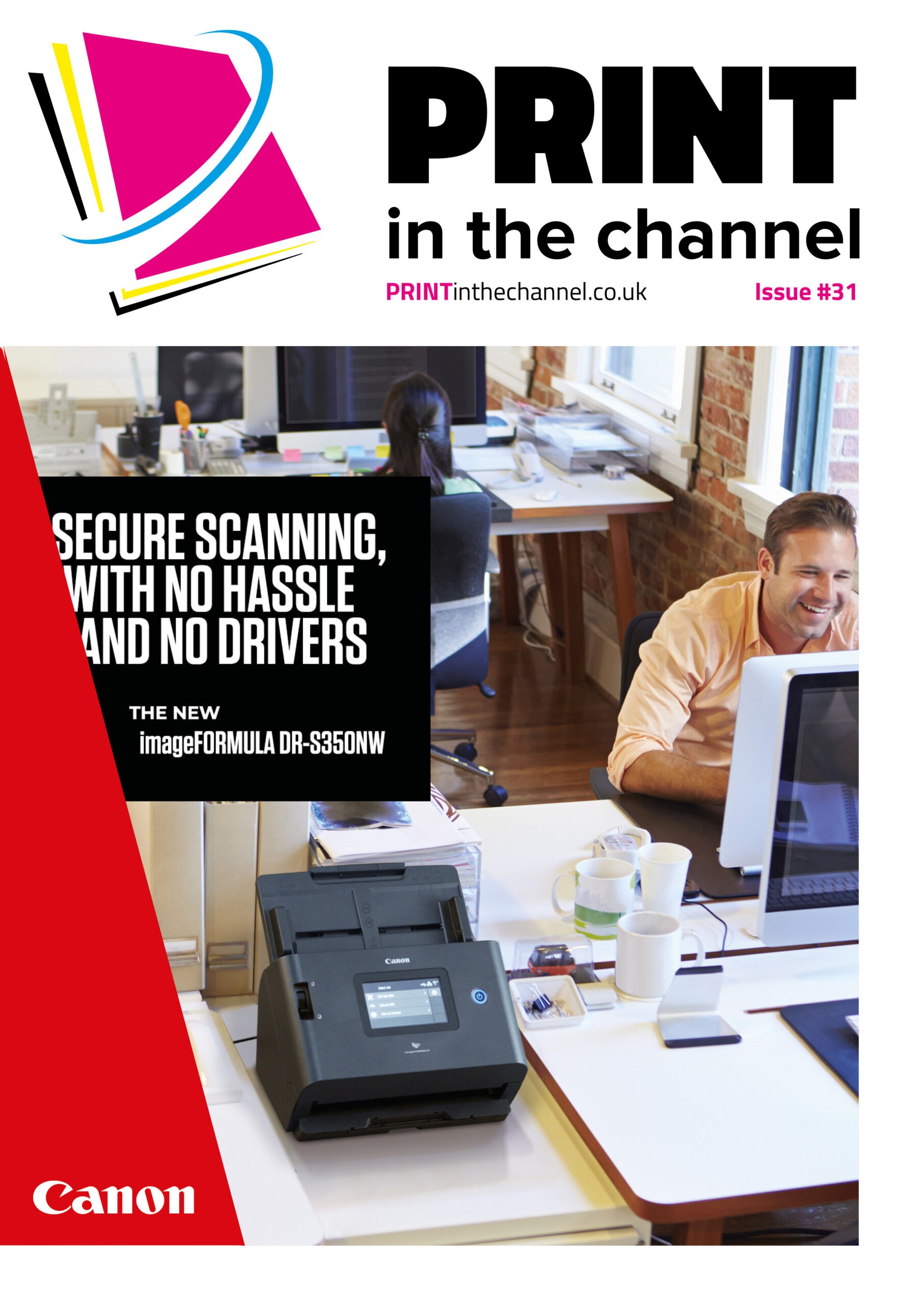Workflo Solutions has become an established managed service provider over the past 15 years across the UK – and its success is down to pragmatism, a willingness to continually evolve and the belief that service is king.
When Michael Field started Workflo Solutions in 2007 as a photocopier and printer supplier, he’d worked in the industry for more than four years by then, but was disillusioned with the way it worked, and thought he could do better.
“The business I had worked for, and the wider market, seemed to operate in a similar way, which was very much flood the business with sales staff and then go and maintain what’s out in the market. But I wanted to flip that on it’s head,” he says. “To me, it is a service market.
“Even in 2007 when we were photocopier printer supplier, the hardware is, in my opinion, secondary to the relationship, trust, service and value that’s delivered by a provider. I thought there was a space in the market for somebody who’s focused on that, and somebody’s got to do it, so why not me?”
Workflo started small – three people, including Michael, working out of a small serviced office in Edinburgh. But he had a vision of how the market should operate and what the business should look like and stayed true to that vision.
“Everything we’ve done, in every decision we’ve made has been about service provision and the market, which has changed drastically over the years as technologies evolved and matured.”
That vision has worked too – today, Workflo Solutions is a managed service provider, specialising in managed print services, records and archive management and digitisation, digital workflow solutions, electronic document management software, cloud computing, IT infrastructure support and hosted telephony, with a turnover approaching £3.5 million.
Workflo Solutions is now headquartered in Livingston, West Lothian and has offices in Glasgow, Aberdeen and East Lancashire, providing services to a UK national customer base of more than 1,000.
Maintaining standards
As the business has grown and the market has changed, Michael has added additional services to the business, but he’s always been careful to ensure that when he does, it can be done to his high standards – as per his original vision.
“For example, in 2016, I had the opportunity to take on the IT support for one of our large print clients,” he says. “I was honest with them and they understood that we were in our infancy in terms of our IT service journey, but they knew that everything we promised to deliver in the eight years prior to that we delivered and then some.
“We entered into that market very much with the same mindset we had with print in 2007: it has to be service and technology led. And, when moving into a market that’s saturated, we must have an offering which gives better value, because if we don’t, the client is better staying where they are. We’ve managed to pivot our business very well into that space and have forged good working relationships with Microsoft as accredited partners and with some of the other big players such as HP and Dell. We opened that service to the market and our client base, and it was warmly welcomed, because much like print had been, there wasn’t the focus on technology and innovation that was once there.”
Digitalisation journey
With the success of this, Michael looked to expand Workflo Solutions’ services to cover a business’ entire digitalisation journey. “We took some time to work at where we think the market should be going, not necessarily where it’s going and what we could do help customers to increase their bottom line?”
To this end, Michael set up a digitisation wing of the business, rather than look to partner with any third parties. “I’m not a big believer in third party parts of service provision,” he says. “My view is the moment you have third parties involved is when you lose control of the service that you’re providing, and it becomes more difficult to ensure that you’re able to meet promises you’ve made. I believe that if you’re negotiating in good faith and you’re entering a partnership, you should absolutely be able to deliver and be in control of that delivery.”
So Michael ensured there was in-house expertise, by buying a long-established business called TRN in 2020. Initially a record management business, it had moved into digitalising records and securely destroying paper documents. “We integrated it into our offering, and it sits in the front end of the managed service that we promote,” he says.
“The conversation should always start with how are you operating now? How far along the digital journey are you? And how can we bring everything that you’ve been doing into that journey and make that very easy for you to manage? The conversation then becomes quite an easy one about managed print, because that involves day to day operations, and scanning documentation as it’s processed.
“Our view is, who better to manage that than the company that has already digitised your archives and understand your indexing strategy and how you’re using that data?
“The conversation then becomes, okay, you get a digital way of working. You’ve got X amount of terabytes of data, whether it’s on premise or in the cloud. We are supporting you, producing that data and managing it daily.
“We need to be the business that maintains the network infrastructure, the backup, disaster recovery, the support for your network. And that opens up the IT conversation. Already in that journey we have stripped out three different vendor relationships, three sets of invoicing, three sets of account management into a managed service where that client gets the best value in the simplest way for them to manage.
“Then, if we’re managing digital data, print, scan, the network infrastructure, then telecoms is an easy conversation for us to have. But more importantly, it brings that overall managed service to a single vendor point so that that client is receiving the best level of service, in the most efficient way they possibly can, which is through a single point of contact, single account management, single invoice strategy.”
Michael adds that Workflo Solutions is the only independent company in Scotland to provide digitisation services without any subcontracting. “That’s a big differentiator between us and the rest of the market,” he says. “But because we’ve got the expertise internally across digitisation and print, we can work with a client and understand the full operation of their business and then make recommendations and implement solutions based on a wide-ranging knowledge rather than a very small funnel view of a part of their business.”
Importance of diversification
Diversification such as this has been important to keep the business growing – and it will continue in the future. “You need to be realistic and recognise that technology within business is changing all the time,” says Michael. “We were slightly concerned eight years ago about the impact that digitisation would have on our service revenue in print. And the reality is not a lot thus far. We see our contracted service revenue increase year on year.
“The drop in print throughput certainly hasn’t concerned us until now, but the decisions we are making in the business now, we’re making for three, four, five years’ time, because if we don’t make those decisions now, when we don’t make that pivot and don’t move away from relying on print revenue by the time you need to do that, it’s too late. We’re aware of the necessity for our business to evolve along with technology.”
Along with that evolution, Michael recognises that he can’t do everything himself, and has gone out to recruit the best in their fields to the business. “As I’ve matured in business over the years, I’ve recognised that you cannot be the best at everything and my role is attracting the best talent available into our business to help us achieve the growth strategies we’ve implemented. For instance, with the TRN acquisition we brought 40 years’ worth of archive, digitisation and records management experience and talent into the business would have been impossible to do organically.
“Acquiring that business catapulted what we are doing in the digital space years ahead. The return we are getting is not just on the acquisition itself and generating margin through that but the skill set that we’ve brought in, which is helping us to grow other areas of our business because we understand that as well.”
Michael has always invested profits back into the business – he isn’t interested in a flashy lifestyle – to enable it to keep growing and take advantage of any opportunities that arise. “Our working capital for an organisation of our size is very strong,” he says. “That allows us to have conversations with potential vendors where we’re able to move much quicker than some because we are not looking to externally fund. We’ve got a sweet spot of circa £1 million turnover down because when we look at EBITDA numbers and multiples, we can fund that internally.”
Moving into public sector
Michael has also looked to expand Workflo Solutions into other markets, such as the public sector. To that end, the company was awarded a place on the Procurement Scotland Framework for Managed Print Services last August.
Michael admits it was hard work to get onto it, but it was worth it, as Workflo Solutions offers something different to the OEM manufacturers that have historically been big players in that market, he believes.
“We’re still at our infancy in the public sector and it is a very different animal to the commercial sector,” he says. “We learned a huge amount over the bidding period. We have an infrastructure of people which allows us to bid for these contracts and put forward an offering that is attractive for the public sector.”
It is something Michael recommends for other independent businesses to get involved in. “If you believe that you’ve got business model which can disrupt the status quo and add value, then I categorically recommend being involved in the public sector,” he says. “I think that there’s potential for us revolutionising our business through a growth market in the public sector space in Scotland.”
Giving back
But Michael isn’t purely focused on business. He appreciates he is in a privileged position now and is using that to give back through a programme of philanthropic work. “I’ve got a really simple view: if you can help, I think you should,” he says. “We started off supporting, through some sponsorship and funding, a charity called Smile Counselling, which supports young people experiencing mental ill health. What they do is just invaluable. The job they do is infinitely more important than the job that we do.”
In addition, at the start of lockdown Workflo Solutions ran a week-long gift-giving initiative to help charity and community groups across West Lothian to support families most in need at a time of crisis and make help make their live a bit more tolerable.
“Our ethos has always been that philanthropy is not just financial support,” says Michael. “Giving someone the gift of your time; run errands for them, help them with chores, or spend time just really listening when they need it. You really don’t need to break the bank to practice philanthropy.
“We are currently supporting West Lothian Food Bank, giving to help people in the area through the cost of living crisis.”
Future
Michael is excited about the future, for Workflo Solutions and the sector more widely. “Document management systems and workflow automation is probably where we see the biggest growth area in the next three to five years because the market is recognising the benefits of this technology. And with the likes of ChatGPT and the AI systems that are coming through and the automation that’s going to be available to a business in the next three to five years, its going to revolutionise what businesses look like.
“Technology is moving at such a rapid rate, what we must do as an organisation is recognise that hindsight is not good enough. We need to be working daily to understand the technology as it evolves so that we can be ahead of the curve on it and offer it to our customers.”









